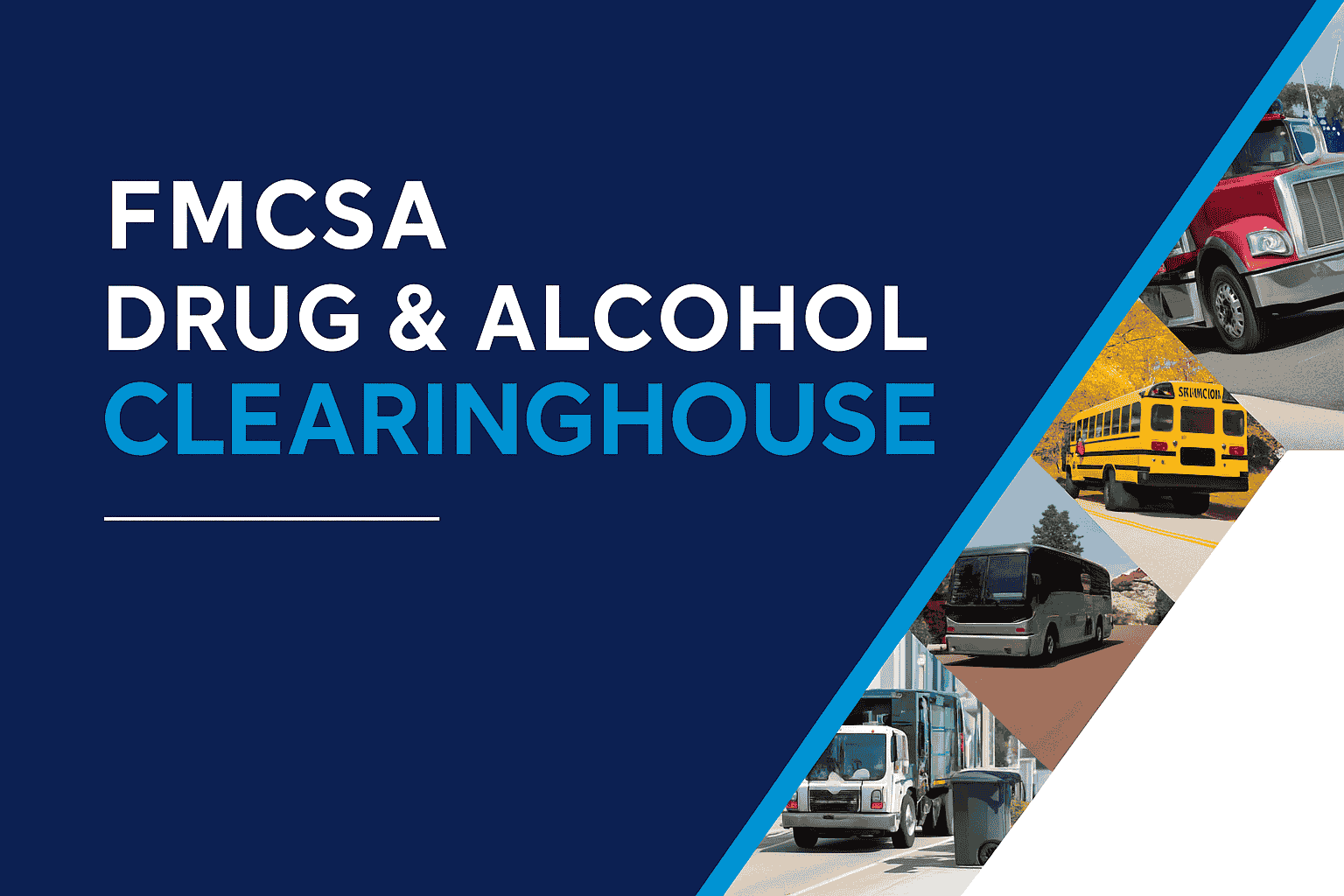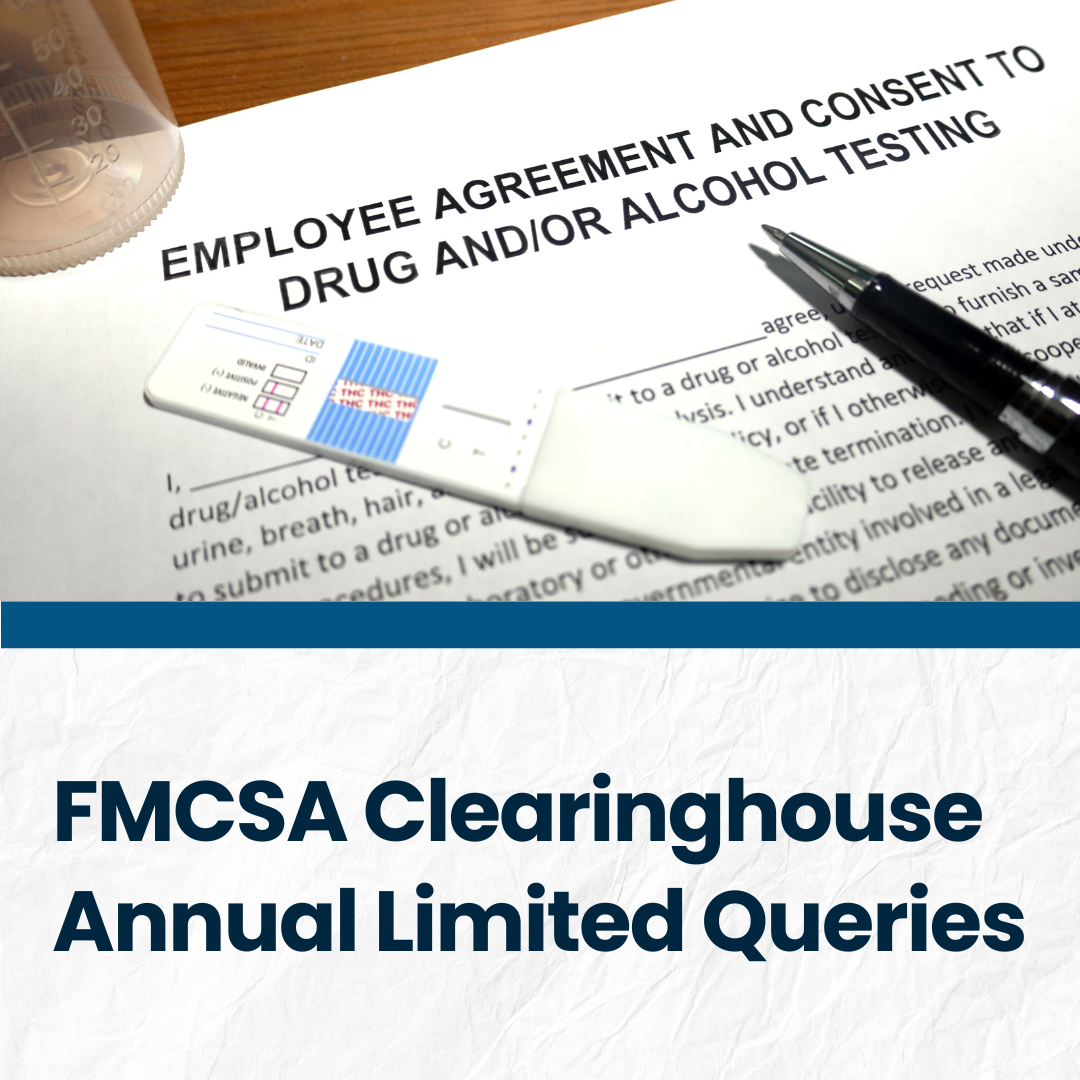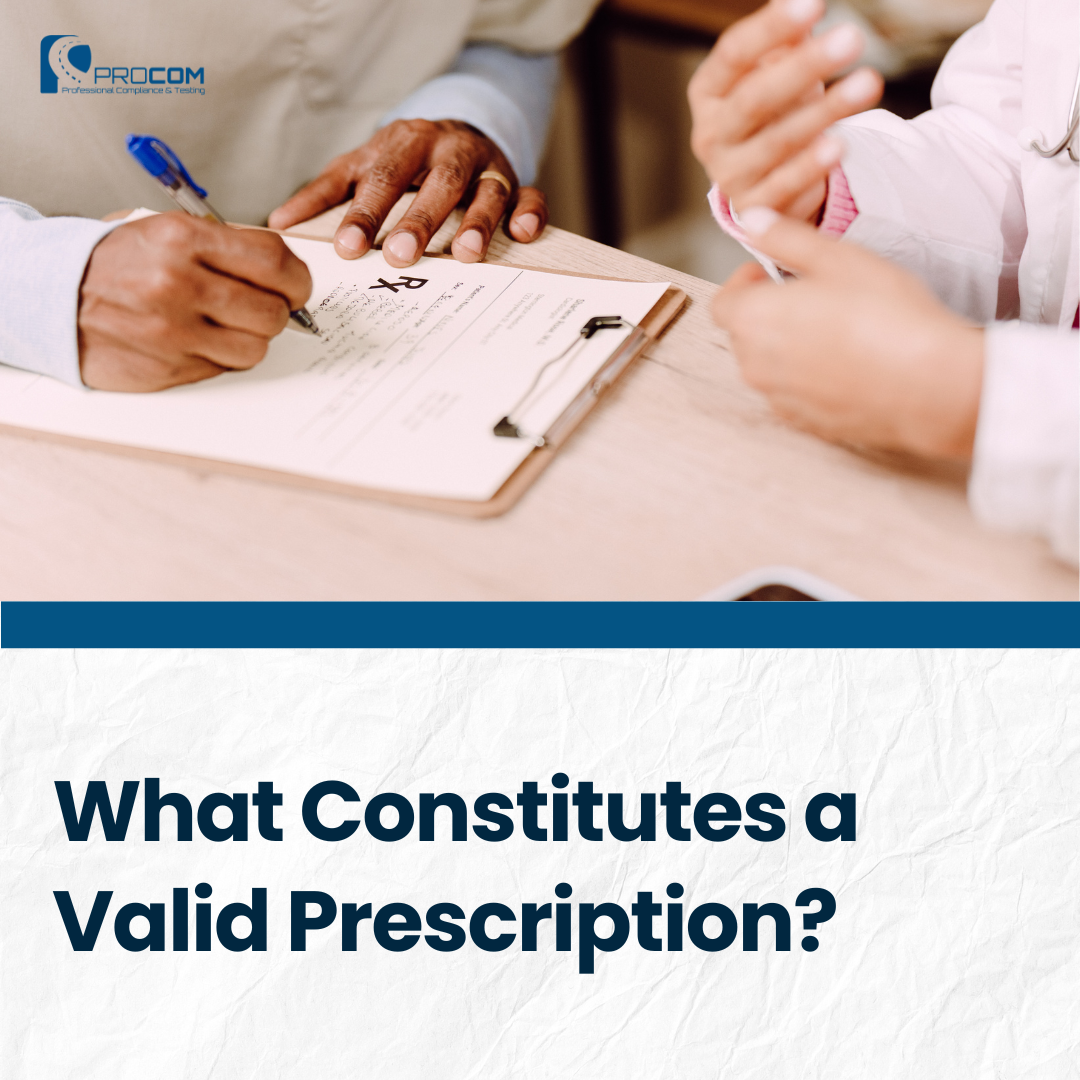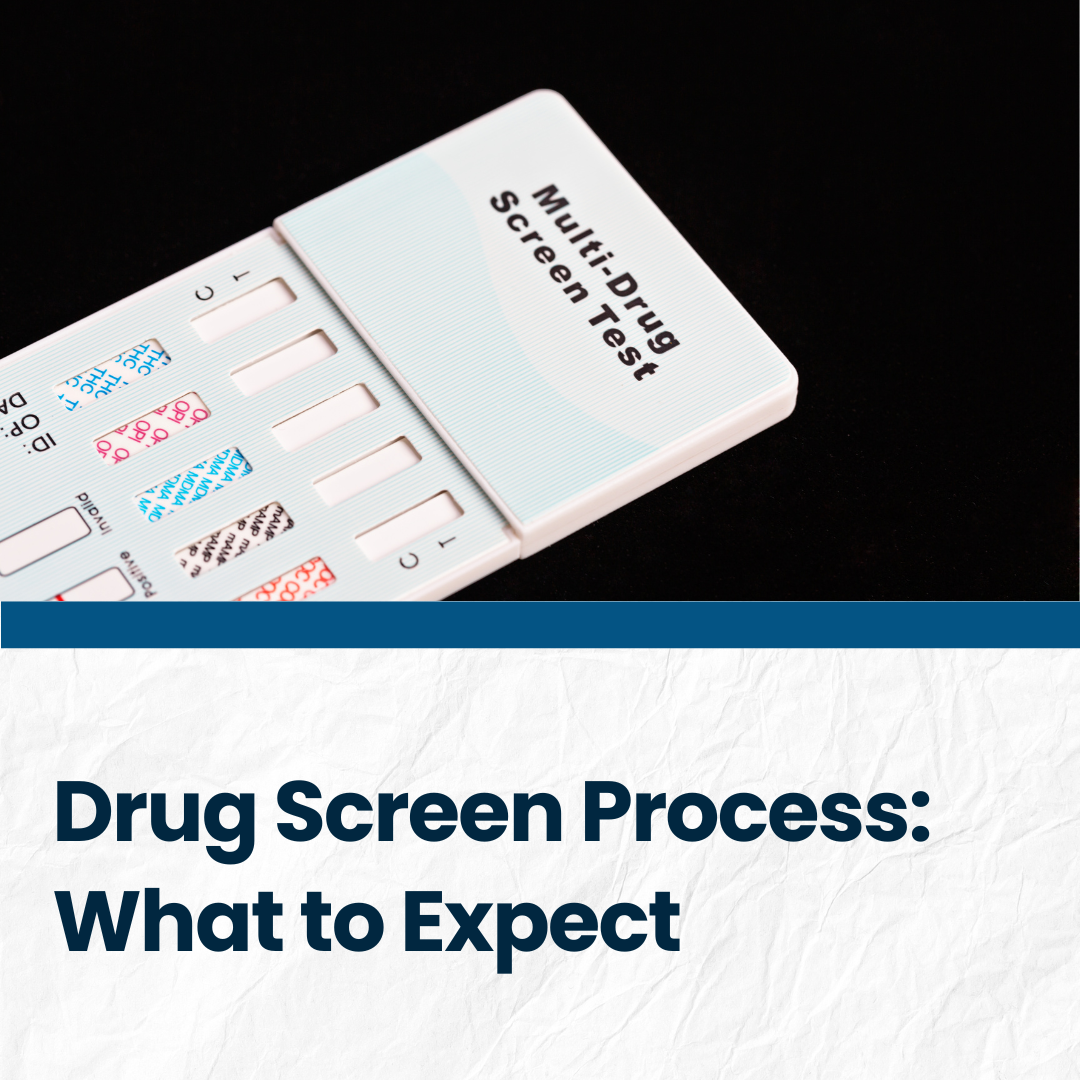If your business is regulated by the Department of Transportation (DOT), staying compliant with the FMCSA Clearinghouse is no longer optional—it’s essential. Whether you’re hiring new drivers or navigating the return to duty process, 2025 brings renewed urgency for DOT-regulated employers to tighten their compliance efforts.
At Procom, we help employers across Colorado and beyond stay ahead of these changes—with certified testing, recordkeeping, and real-time support.
Quick Summary for Employers
- All DOT-regulated employers must register with the FMCSA Clearinghouse.
- Annual limited queries are mandatory—failure to comply could result in audits or fines.
- The return to duty process is stricter than ever, requiring documentation and follow-up testing.
- Partnering with a reliable Consortium/Third Party Administrator (C/TPA) like Procom ensures you’re never out of step.
What Is the FMCSA Clearinghouse?
The FMCSA Clearinghouse is a secure, online database that tracks CDL drivers’ drug and alcohol violations. It helps employers, the FMCSA, and state agencies make informed hiring decisions and enforce safety regulations.
If you’re a motor carrier, school bus contractor, or operate any business with safety-sensitive CDL roles, you’re legally required to use the Clearinghouse for:
- Pre-employment full queries
- Annual limited queries
- Recording drug/alcohol violations
- Monitoring the return to duty process
You can learn more directly from the official Clearinghouse portal.
2025 Updates: What’s New This Year?
While the core functionality of the FMCSA Clearinghouse hasn’t changed, how it’s being enforced absolutely has. The DOT and FMCSA are increasing oversight in 2025, and employers are seeing the impact through more aggressive audits, tighter data standards, and stricter follow-through on driver violations.
Here’s what’s new—and what it means for your operation:
1. More Audits, Less Grace
FMCSA is actively increasing audit frequency, especially for smaller and midsize carriers that may not have a dedicated compliance officer. Employers who fail to conduct annual limited queries or who improperly document return-to-duty steps are being flagged for review. This year, it’s not just about having policies in place—it’s about execution and proof.
2. Tighter Data Matching Requirements
The Clearinghouse is refining how it matches driver records, meaning small discrepancies—like an incorrect CDL number or missing consent—can now trigger warnings or invalidate your queries. Employers must ensure all submitted information is accurate, consistent, and up to date across their records and the Clearinghouse portal.
3. Crackdown on Return-to-Duty Delays
The return to duty process is under the microscope. DOT auditors are now tracking the time between a violation and the employer’s documentation of follow-up steps. Missed deadlines, incomplete SAP tracking, or improper test supervision are being treated as compliance failures.
Key Takeaway: Employers can no longer treat the Clearinghouse as a “check-the-box” requirement. You need an active strategy for maintaining data hygiene, tracking driver timelines, and running queries on schedule.
We break down annual query obligations in more detail in our post onFMCSA Clearinghouse annual limited queries—including best practices and how to streamline the process.
The Return to Duty Process: What to Know
The return to duty process (FMCSA) kicks in after a CDL driver fails or refuses a DOT drug or alcohol test. Here’s a breakdown of the steps:
- Substance Abuse Professional (SAP) Evaluation
- Completion of SAP Recommendations
- Observed Return-to-Duty Test
- Follow-Up Testing Plan
Employers are responsible for monitoring the timeline, updating the Clearinghouse, and ensuring compliance. Need help managing it? Our return-to-duty resource hub explains each step and your obligations.
Procom simplifies the process with detailed documentation and full program support, helping you avoid the most common errors we see during DOT audits.
Why Employers Must Act Now
Failing to comply with FMCSA Clearinghouse rules can lead to:
- Costly penalties from DOT audits
- Disqualification of drivers
- Delays in hiring
- Risk to public safety and company reputation
Working with a C/TPA isn’t just a recommendation—it’s a best practice. Learn how to designate Procom as your C/TPA and get full support on compliance, reporting, and training.
Our FMCSA Services Include:
- Full Clearinghouse account setup
- Annual queries
- SAP coordination
- Return-to-duty tracking and documentation
- Employee training and supervisor certification via our training page
- Statewide service through ourProcom locations, including offices in Denver and Grand Junction, and Pueblo.
FMCSA compliance is Non-negotiable
Whether you’re onboarding new drivers or tightening up your compliance program, Procom’s Denver-based team is here to help you navigate every step of the FMCSA Clearinghouse process in 2025 and beyond. From return-to-duty tracking to annual queries, our local presence means faster service, hands-on support, and deep familiarity with regional DOT enforcement trends.
FAQs About the FMCSA Clearinghouse
What is the FMCSA Clearinghouse used for?
It’s a federal database that tracks CDL driver drug and alcohol program violations. Employers use it to run required queries and manage compliance.
How do I complete the FMCSA return to duty process?
Start with a SAP evaluation, ensure the driver completes treatment, then document the observed return-to-duty test and follow-up schedule. Procom can guide you through it.
Do I need to run queries every year?
Yes. Annual limited queries are mandatory for all active CDL drivers under your authority.
What happens if I don’t comply?
Non-compliance can trigger DOT audits, fines, and the removal of drivers from safety-sensitive roles.
Can I outsource FMCSA compliance?
Absolutely. As your C/TPA, Procom can handle queries, testing, return-to-duty coordination, and audit readiness.
Is return-to-duty testing observed?
Yes. All return-to-duty and follow-up drug tests must be observed as per DOT rules.
Can I get a court-ordered drug test here?
Yes. We work directly with courts and probation offices to provide certified, chain-of-custody testing.




